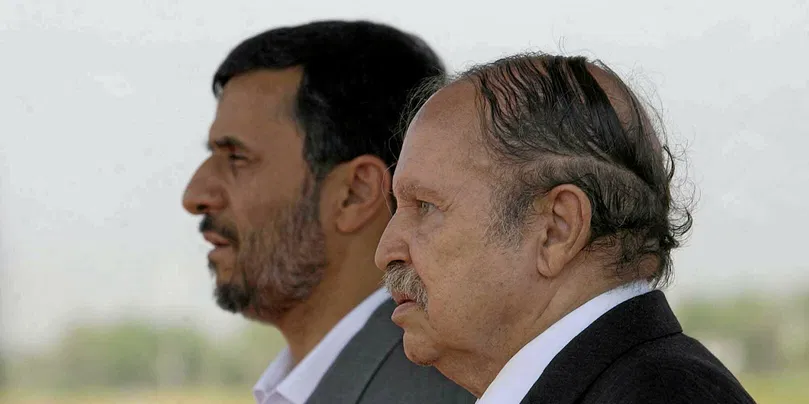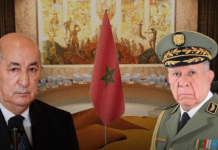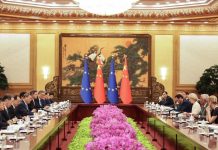
For decades, Algiers has maintained diplomatic ties with Tehran marked by mediation and discreet loyalty at key moments in history.
On Monday April 8, sixty days before the start of the war between Israel and Iran
Abdelmadjid Tebboune received the head of Iranian diplomacy, Abbas Araghtchi, at the El Mouradia Palace, who sent him an invitation for an official visit to Iran. While this war definitively jeopardizes the Algerian president’s trip to the land of the mullahs, the invitation nonetheless underlines the excellence of Algerian-Iranian relations.
Indeed, on Friday, June 13, Algerian diplomacy was quick to condemn the Israeli offensive against Iran, referring to an “aggression (which) would not have been possible without the impunity enjoyed by the aggressor.” Of the three Maghreb countries, Algeria is thus the only one to express unambiguous support for Iran. The two countries have in common, in particular, that they consider Israel a shorn enemy.
between Algiers and Tehran, there is a long history of services rendered, good offices, ruptures and reconciliations. In the 1970s, at a time when Algiers was the Mecca of revolutions, President Boumediene invested in an operation aimed at setting the long-standing dispute between Iran and Iraq over the river borders between the Tigris and Euphrates. In March 1875, after several months of discussions under Algerian patronage, Shah Mohammad Reza Pahlavi and Saddam Hussein signed an agreement in Algiers sealing the end of this ancestral conflict.
The Golden age of Algerian diplomacy
it was the golden age of Algerian diplomacy, whose services Iran would request four years later. It was November 1979, eleven months after the start of the Islamic Revolution led by Ayatollah Khomeini. In the wake of this uprising that overthrew the Shah’s regime, forcing him to flee, hundreds of Iranian students invaded the Ameriacan embassy in Tehran and took 63 people hostage. As global tensions soared, Algeria stepped in as a mediator, eventually facilitating the 1981 Algiers Accords, which secured the hostages’ release after 444 days in captivity.
A Renewed Partnership?
Today, with regional tensions at a boiling point, Algeria’s vocal support for Iran signals a potential revival of its historical role as a diplomatic intermediary. However, President Tebboune’s planned visit to Tehran now hangs in the balance as the Israel-Iran conflict threatens to reshape alliances across the Middle East and North Africa.
As the war rages on, Algeria’s stance reaffirms its alignment with Iran—a partnership rooted in anti-Israel solidarity and a shared history of defiance against Western influence. Whether this will translate into renewed mediation efforts remains to be seen, but for now, Algiers stands firmly alongside Tehran.
BY: The Times Union






